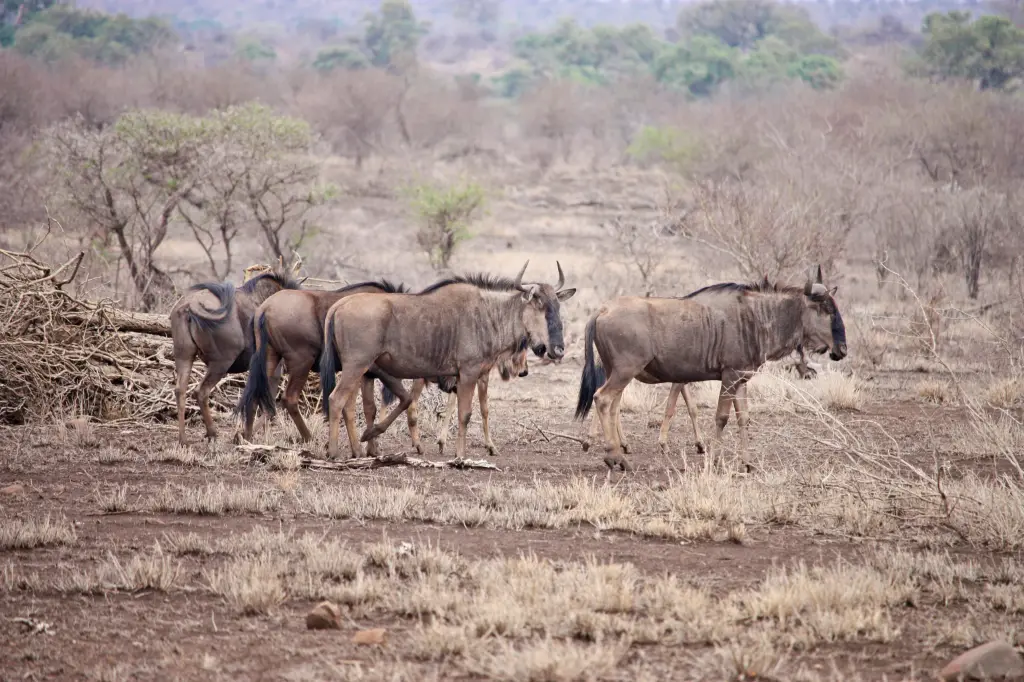
The rapid loss of nature in Kenya and Africa threatens long-term socio-economic development and people’s well-being. To address this challenge, governments and businesses should expand efforts to recognize and quantify nature’s contributions to economies and integrate them into policies and decisions. This will boost the sustainable management of our natural resources.
Natural capital– forests, wildlife, land, oceans, and wetlands–provides vital goods and services to economies. These include food, fresh water for domestic, agricultural, and industrial use, air filtration, pollination, flood and soil erosion control, tourism attraction, and climate change regulation.
But nature’s contributions to economies are largely not part of calculations and decisions regarding national economic performance. A recent report by the Intergovernmental Science-Policy Platform on Biodiversity and Ecosystem Services (IPBES) affirms that “there is a dominant global focus on short-term profits and economic growth, often excluding the consideration of multiple values of nature in policy decisions.”
Environmental non-profit Conservation International (CI) asserts that “natural capital has long been considered ‘free,’ which causes the benefits that nature provides to be taken for granted and used at a rate that the Earth cannot replenish.”
The World Bank’s The Changing Wealth of Nations (CWON) 2021 revealed that nearly half of the 26 countries whose wealth per capita declined between 1995 and 2018 are in Sub-Saharan Africa (SSA). This was in part due to the declining value of renewable natural capital, including due to deforestation and overfishing. CWON notes that natural capital is at least 20% of SSA’s total wealth, making its optimal management a priority for the continent.
For decades, economic progress has been gauged largely using the Gross Domestic Product (GDP), which reflects the market value of goods and services produced. However, this indicator provides limited insights into the condition of the natural capital that sustains economic production. For instance, uncontrolled logging or overfishing may lift the GDP and give an impression of economic progress. But it masks the harm to the foundations of future prosperity.
To better realize sustainable socioeconomic development, Africa needs to accelerate the adoption of Natural Capital Accounting (NCA). The UN defines NCA as the systematic measurement and reporting of stocks and benefits of natural resources to people. NCA builds the case that nature is an asset that needs to be maintained and managed just like other forms of capital.
According to the World Bank, the concept of NCA has existed for years but little has been done to implement it. It notes that the challenge now is to build capacity for countries to implement it and to demonstrate its benefits to policymakers.
In Africa, momentum for NCA is growing as countries seek to better manage natural wealth to meet priorities for sustainable development, combating climate change, and reversing biodiversity loss. Several African countries have mapped portions of their natural capital in line with global NCA standards. Uganda, for instance, recently published detailed accounts for fisheries, land, and soil, and biodiversity and tourism. Botswana has developed water, minerals, and energy accounts to inform economic growth, diversification, and poverty government. Liberia has also mapped its ecosystems. Last year, South Africa unveiled a ten-year strategy to harmonize NCA efforts. These efforts need to be supported.
About 20 African countries have come together under the Gaborone Declaration for Sustainability in Africa (GDSA) to advance NCA on the continent. This forum, coordinated by the Government of Botswana, has achieved much but needs to be strengthened to realize its full potential.
In 2020, the Africa NCA Community of Practice was launched to boost NCA on the continent via capacity building and knowledge sharing. The platform brings together professionals from governments, NGOs, and academia. It has conducted a series of knowledge-sharing events since then.
Efforts to promote NCA received a boost last year when the UN officially adopted the System of Environmental-Economic Accounting – Ecosystem Accounting (SEEA EA). This is a standardized NCA framework that integrates natural capital into national economic accounting systems. The UN and the Basque Centre for Climate Change (BC3) also unveiled an open-source artificial intelligence (AI) tool empowering countries to easily quantify nature’s contributions to economies using SEEA EA.
Conservation International and the US space agency NASA have also introduced a low-cost, replicable method for mapping ecosystems and supporting NCA implementation, with Liberia among the initial beneficiaries.
Going forward, high-level government and corporate commitment, capacity building, and lesson sharing will be critical in expanding NCA uptake in Africa and beyond. We can no longer afford to ignore nature’s contributions to our well-being.